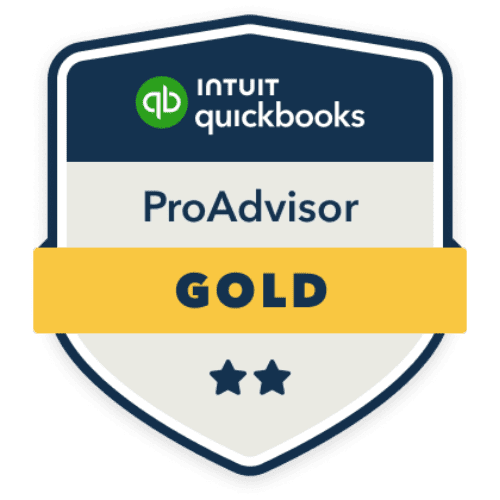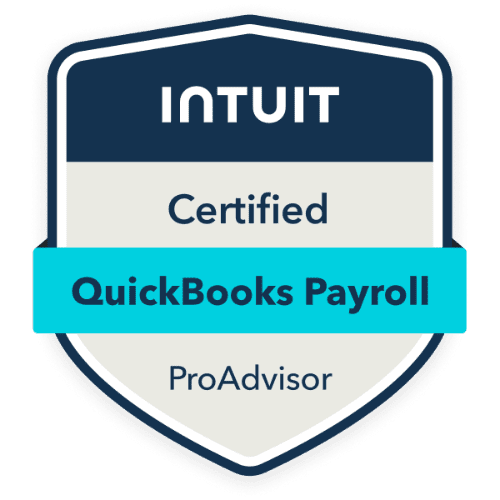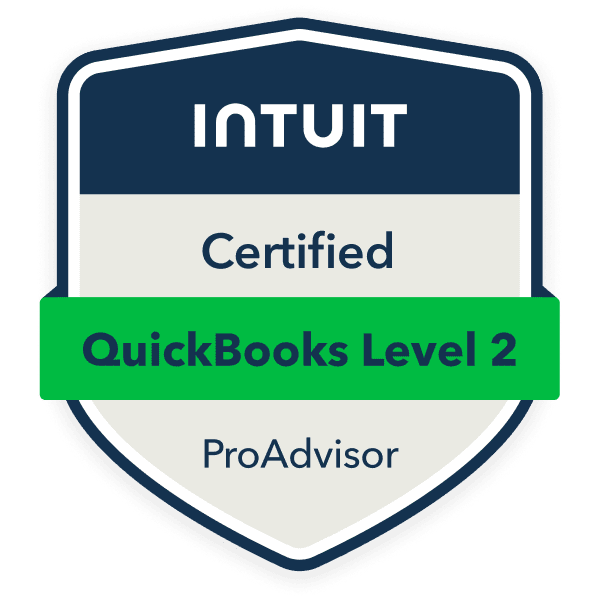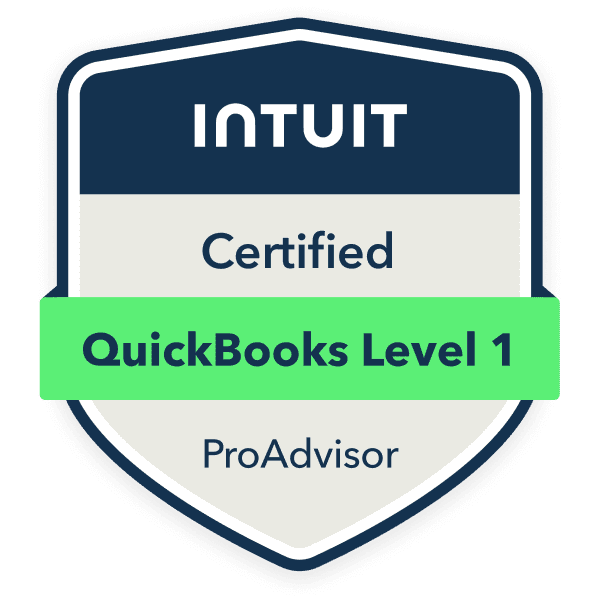Running a small business is challenging enough without the added stress of messy finances, cash flow struggles, or uncertain profits. If you’ve ever felt overwhelmed trying to manage your books or wondered whether hiring a bookkeeper is worth it, you’re definitely not alone.
As a QuickBooks ProAdvisor and virtual bookkeeping expert serving small businesses nationwide from Northeast Wisconsin, we see this pattern repeatedly—passionate business owners who excel at what they do but feel lost when it comes to their books. The good news? There are three game-changing strategies that consistently help our clients transform their financial management—and they can work for your business too.
Change #1:
Separating Business and Personal Finances
Why This Change Is Needed
We often meet business owners who’ve been using their personal cards for business expenses, always planning to “sort it out later.” Sound familiar? Unfortunately, later rarely comes, and the consequences add up quickly.
This approach creates a perfect storm: tax time becomes overwhelming and most costly, business owners lose track of where their money is actually going, and they miss out on legitimate deductions simply because their records are incomplete. Our virtual bookkeeping services have helped clients recover thousands of dollars in missed deductions by cleaning up their books and maintaining strict business finances.
The Game-Changer
The solution is simpler than most business owners expect: opening a dedicated business bank account and connecting it to QuickBooks Online. As a QuickBooks ProAdvisor, I’ve seen firsthand how this powerful combination automatically tracks transactions and provides visibility into earnings and spending patterns.
QuickBooks Online stands out among bookkeeping software options because of its intuitive interface, robust reporting features, and seamless bank integration. Whether you’re working with outsourced bookkeeping services or managing finances yourself, this separation is crucial. The results of implementing just this first change are remarkable. Our clients typically save 10-12 hours per month that they used to spend hunting for receipts, reconciling mixed transactions, and trying to piece together their financial picture.
How to Implement It
- Open a dedicated business bank account for all income and expenses
- Connect the account to QuickBooks Online (or other bookkeeping software like Xero or Wave)
- Schedule weekly check-ins to review transactions and categorize them correctly
If finances are already mixed, a QuickBooks ProAdvisor can help clean up records and ensure every possible deduction is claimed. Many business owners find that working with a certified QuickBooks expert for this initial cleanup pays for itself through recovered deductions alone.
Change #2:
Real-Time Expense Tracking for Small Businesses
Why This Change Is Needed
Here’s a scenario we see all too often: a business owner finishes a client lunch, gets back to the office, and thinks, “I’ll log that expense later.” Fast forward to tax season, and that receipt (along with dozens of others) is nowhere to be found.
From software subscriptions to client meetings and business dinners, these overlooked expenses add up quickly, and valuable deductions disappear with them. This is where virtual bookkeeping services can make a significant difference, but even DIY business owners can solve this with the right system.
The Game-Changer
The solution is real-time expense tracking using an app that syncs directly with your bookkeeping software. QuickBooks Online’s mobile app excels at this. You can snap photos of receipts, categorize expenses instantly, and watch everything automatically sync to your books. This simple shift eliminates the guesswork and ensures nothing falls through the cracks.
How to Implement It
- Download QuickBooks Online’s mobile app, or alternatives like Dext or Expensify that integrate with your bookkeeping software
- Make it a habit to log receipts immediately after purchases
- Set reminders to check your expense reports weekly to stay on track
Professional tip: Outsourced bookkeeping services can automate this entire process, but the key is consistency regardless of whether you’re doing it yourself or working with a QuickBooks ProAdvisor.
Change #3:
Creating a Small Business Cash Flow Plan
Why This Change Is Needed
Picture this common scenario: it’s the 15th of the month, rent is due, but the biggest client payment isn’t expected until the 20th. Sound stressful? Many business owners find themselves in this exact situation, relying on their current bank balance to make spending decisions and constantly worrying about running short.
Even after separating business and personal finances and carefully tracking income and expenses with QuickBooks Online, without a clear financial roadmap, business owners often feel like they’re flying blind. This is where the third strategy becomes a true game-changer for small business financial management.
The Game-Changer
Creating a cash flow plan transforms this uncertainty into confidence. QuickBooks Online’s cash flow forecasting tools make this easier than ever. When QuickBooks is set up and utilized correctly, you can see exactly when revenue will arrive and when expenses are due, providing complete clarity on spending capacity and eliminating sleepless nights spent worrying about money.
How to Implement It
- Use QuickBooks Online’s built-in cash flow forecasting feature, or create a simple spreadsheet as an alternative
- Mark key dates for major expenses like rent, payroll, and supplier payments
- Build a cash buffer to handle unexpected costs
Not sure how to organize business finances or create an effective cash flow plan? A QuickBooks ProAdvisor can leverage the software’s advanced features to create a customized cash flow plan that fits your specific business goals and industry needs.
When to Start: The Perfect Time is Now
Whether you’re a new business owner or have been operating for years without proper bookkeeping systems, now is the perfect time to implement these changes. With then end of the year approaching, getting your books organized and cleaned up before the deadline will save you stress, time, and potentially thousands in missed deductions.
If you haven’t been keeping business books at all, don’t let that overwhelm you. Starting fresh with these three strategies will set you up for success moving forward. Many business owners ask, “Is hiring a bookkeeper worth it?” The answer often depends on your time, expertise, and business complexity. Whether you choose virtual bookkeeping services or decide to manage finances yourself using QuickBooks Online, these foundational changes are essential.
A QuickBooks ProAdvisor can help you catch up on past records, set up your QuickBooks file properly, ensure full compliance, and maximize your tax benefits, often paying for themselves through recovered deductions and time savings alone.
The Bottom Line
These three changes consistently transform small business finances. By separating business and personal finances, implementing real-time expense tracking, and planning cash flow, business owners gain clarity, control, and confidence in managing their money.
Our clients who implement these strategies often report saving thousands in missed deductions and eliminating the financial stress that once kept them up at night. The benefits of hiring a QuickBooks ProAdvisor often become clear during this process. Professional guidance can accelerate these improvements, optimize your QuickBooks setup, and ensure nothing falls through the cracks.

Ready to Transform Your Business Finances?
If you’re ready to eliminate financial stress and gain control over your money, these three changes are your roadmap to success. Don’t let another month go by feeling uncertain about your finances.
Start implementing these strategies today, and if you need help getting your books organized or catching up on past records, consider working with virtual bookkeeping services that can guide you through the process remotely. Whether you’re located in Wisconsin, across the Midwest, or anywhere nationwide, professional bookkeeping support is more accessible than ever.
Your free 30-minute discovery call is just one click away.
Two Rivers Bookkeeping – Your Trusted Virtual Bookkeeper and QuickBooks Specialist for Small Businesses















